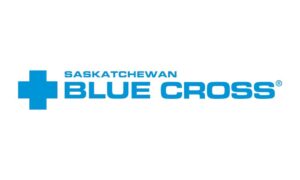What happens if you don’t meet your deductible?
What happens if you don’t meet your deductible?
Many health plans don’t pay benefits until your medical bills reach a specified amount, called a deductible. This could be $1,000, $2,000 or even more, depending on the type of plan you choose. If you don’t meet the minimum, your insurance won’t pay toward expenses subject to the deductible.
Is a 4000 deductible high?
As long as you are healthy, it is usually a more affordable option for health care coverage. However, this trade-off must be weighed carefully. For some HDHPs, deductibles may be as high as $4,000 for an individual. If you do suffer an accident, you will likely face a large bill. Jun 24, 2019
What is a 5000 dollar deductible?
The $5,000 deductible option means your health plan benefits kick in after you pay $5,000 out of your own pocket. You can: (1) choose your coinsurance, (2) choose your office visit copay, and (3) choose your prescription drug benefits to create a plan just for you or for your whole family.
Why is my insurance deductible so high?
Why so high? Typically when you have a health insurance plan with a low monthly premium (the monthly payment), you’ll have a higher deductible. This means you won’t be paying a lot for your monthly bill, but if you need to use your insurance, you’ll have to pay for medical expenses until you reach your deductible. Nov 28, 2017
How much should my deductible be?
Generally, drivers tend to have average deductibles of $500. Common deductible amounts also include $250, $1000, and $2000, according to WalletHub. You can also select separate comprehensive and collision coverage deductibles. Mar 12, 2021
What happens if my deductible is higher than the damage?
What if my car insurance deductible costs more than my repairs? If your auto insurance deductible is higher than the cost of the damage to your vehicle, you’ll pay for the entire cost out of pocket as the insurer only covers damages above your deductible amount.
Do I pay the deductible?
The answer to when you pay is relatively simple. You have to pay a deductible any time you make a claim for your car insurance. The deductible is an agreed-upon amount that you have to pay out of pocket whenever you make an insurance claim before the insurer will cover the cost of damages. Jun 2, 2020
Is a 200 deductible good?
According to the Insurance Information Institute, increasing your deductible from $200 to $500 could reduce collision and comprehensive costs by 15-30%; going to a $1,000 deductible could save 40%.
What is a 250 deductible?
101. A car insurance deductible is the amount of money you tell your insurance company you will cover in the event of a claim. For example, if you have a deductible of $250 and you have $300 in damage to your car you will pay $250 and the insurance company will pay the remaining $50.
What does 20 coinsurance mean after deductible?
The percentage of costs of a covered health care service you pay (20%, for example) after you’ve paid your deductible. Let’s say your health insurance plan’s allowed amount for an office visit is $100 and your coinsurance is 20%. If you’ve paid your deductible: You pay 20% of $100, or $20.
What’s the average deductible for health insurance?
According to the Kaiser Family Foundation (KFF), the 2020 average deductible for individual, employer-provided coverage was $1,644 ($2,295 at small companies vs. $1,418 at large companies).
What does ACV less 500 deductible mean?
If you chose a $500 deductible, you would pay the first $500 out of pocket to replace your vehicle. Your Comprehensive insurance would then pay the rest of the cost to replace your vehicle, up to the lower of the actual cash value (ACV) of the vehicle or the Stated Amount that you submitted.
Are HSAs worth it?
HSAs Are Great If You Never Get Sick So even if you’re the model of perfect health right now, you can invest that money for 30-40 years and use it when you’re retired. Money in your HSA can even be applied to deductibles, coinsurance and copays if you decide to switch back to a traditional plan in the future. Nov 22, 2021
What is a good out-of-pocket maximum?
2018: $7,350 for an individual; $14,700 for a family. 2019: $7,900 for an individual; $15,800 for a family. 2020: $8,150 for an individual; $16,300 for a family.
Who is a high deductible plan good for?
A high-deductible health plan might be right for you if: You’re healthy and rarely seek medical care for illness or injury. You can afford to pay your deductible upfront or within 30 days of receiving a bill for that amount if a surprise medical expense comes up. Feb 24, 2022



